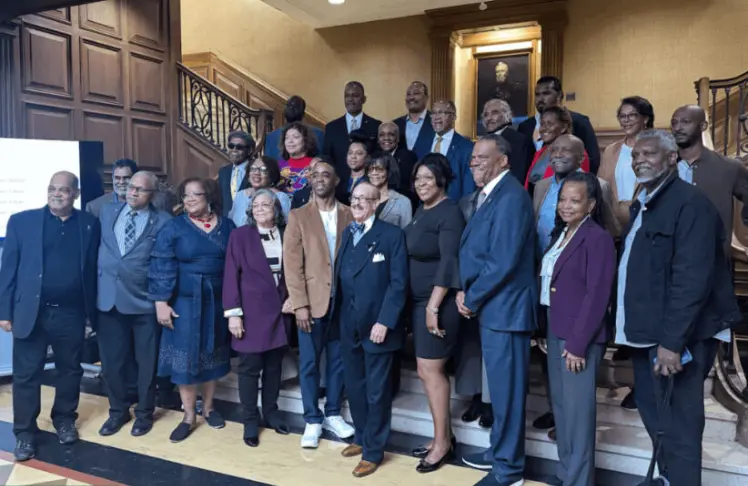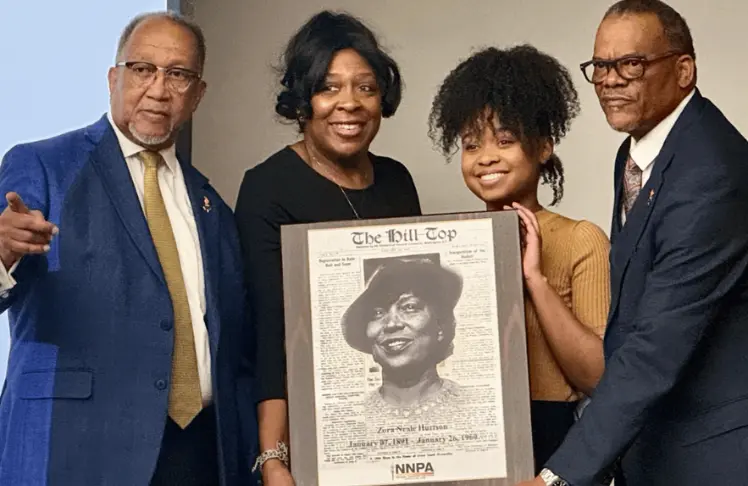
By Joy Young, Howard University News Service
Students, researchers and journalists from various Black publications filled the Blackburn Auditorium on Thursday as the Moorland-Spingarn Research Center (MSRC) honored the contributions of Black journalists and writers in recognition of National Black Press Day.
The March 14 event, in partnership with the National Newspaper Publishers Association (NNPA), shed insight into how Black literary and press history has been preserved since the publication of the first Black newspaper, The Freedom’s Journal, in 1827.
“The Black press has been on the front lines for 197 years, and in 2024, we’re still on the front lines,” said Dr. Benjamin Chavis, president and CEO of the NNPA. “Not only for reporting the news, but for being an advocate for freedom, justice, and equality.”

The Black Press Archive started as a joint project between the NNPA and MSRC in 1973, making Howard the official holding place for their collections. Since then, they have come to represent over 2,000 newspaper titles.
Benjamin Talton, the director of MSRC, also announced that the digitization project recently received a $760,000 grant from Google to continue to digitize and maintain the archives. With this grant, the archive plans to make documents available for anyone in the world to access.
“We’ve had so many students and staff members come through and make personal connections to their own town because of the Black press and because of the collection here at Moorland Spingarn Research Center,” said Brandon Nightingale, the senior project manager for the Black Press Archives.
“If I need to find a piece of history, I don’t have to go to other schools to find it. Moorland has everything I need,” he said.
Corey Kouakou, communications specialist at MSRC, hopes that Black Press Day makes the community aware of Black writing and history.
“A lot of people don’t know about the Black press. Before I started working here, I didn’t know enough,” said Kouakou. “It’s important that people today see that this has been a long journey spanning multiple lifetimes.”
Rebecca Haynesworth believes that the best way to honor the Black Press’ legacy is through truth-telling.
“It’s important to separate ourselves from other people’s truths,” she states. “Going back to our roots of not parroting larger white media or parroting other people’s views of what is happening within our communities. That way, we get back to guarding truth through our cultural lens.”
The MSRC website provides additional information on accessing the Black Press Archives’ repository or scheduling an appointment with an archivist.















